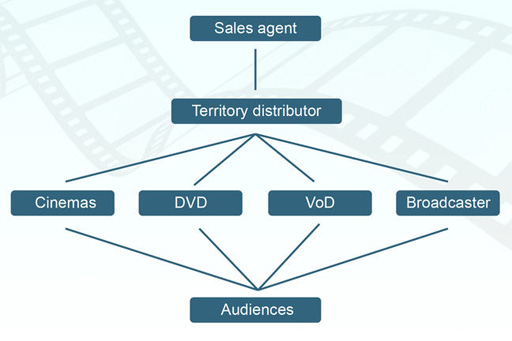1 What distributors do
Before you get started, some terms need to be clarified. In the world of independent film, distribution companies tend to work on a territory by territory basis.
So, for example, the UK distribution company (also known simply as distributor) will buy the film for the UK. That means the distributor will have the right to arrange for distribution in all media (cinemas, DVD, video-on-demand [VoD], television, airlines, etc.) in the UK only. A French company will buy the film for France. A German company will buy for Germany. This continues for all the territories around the world.
The distributor then makes the decisions (subject to contractual arrangements with the producer) as to when and how it will release the film, what sort of marketing campaign it will create and how much it will pay for marketing expenses, which are known as P&A (for prints and ads) in the case of territory distribution. The distributor is responsible for the financial success of the film in its territory.
In actual fact, the distributor is usually not making an outright purchase of the film. The distributor will be entering into a license agreement, whereby the distributor has the right to distribute the film in its territory for a particular length of time – usually known as the ‘term’. However, everyone in the industry often speaks colloquially of the film being ‘bought’ for the territory.
Now, because there are many different territories in which a film may be sold around the world – too many for the producer to deal with themselves – the producer generally employs an intermediary, the international sales agent, to advise on and to make the sales to the various distributors. The sales agent has the expertise on the range of distributors in the different territories. They have relationships with many distributors from previous films and so will make a judgement as to which distributors are likely to be suitable for the film and will pay appropriately.

